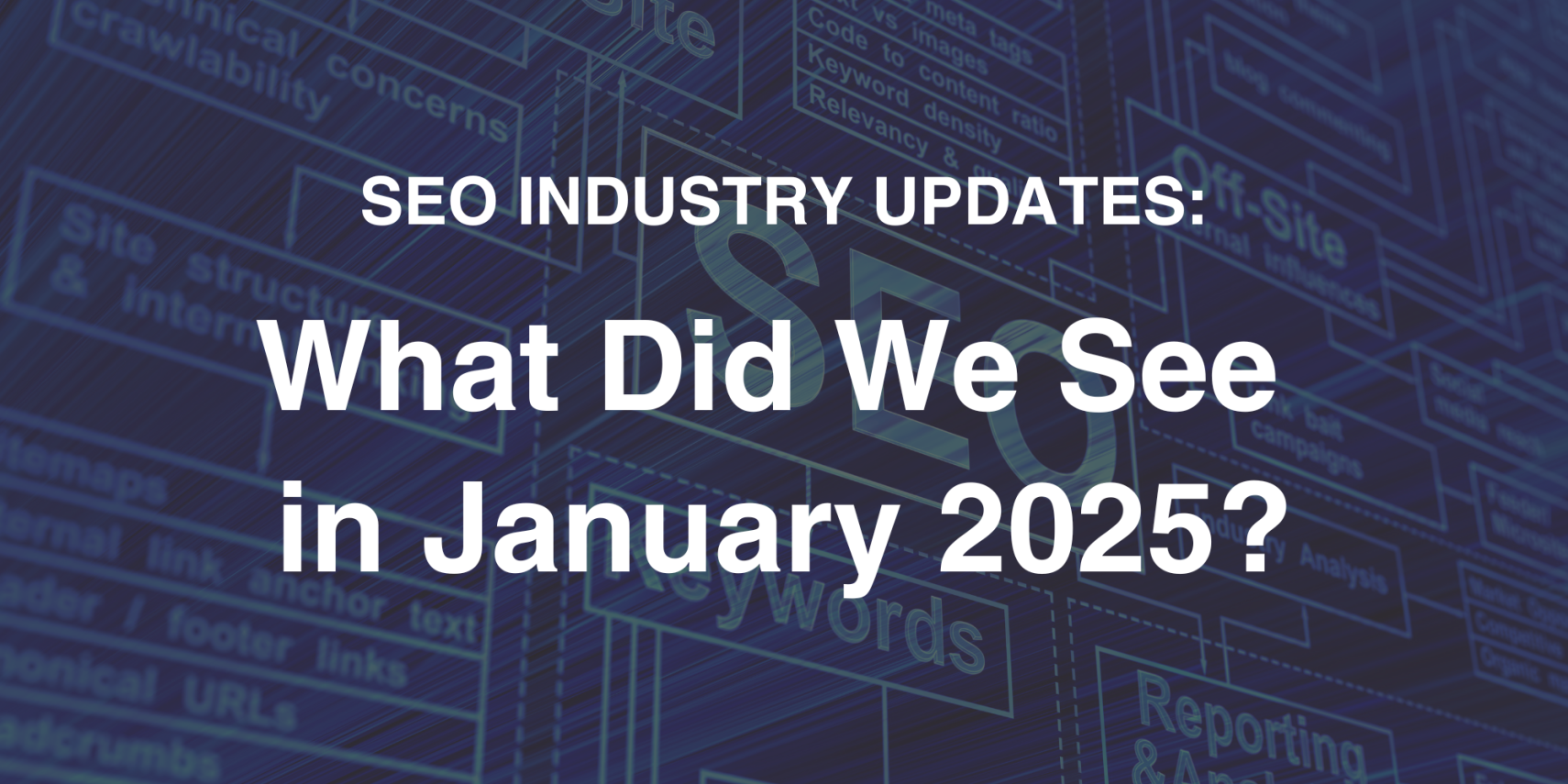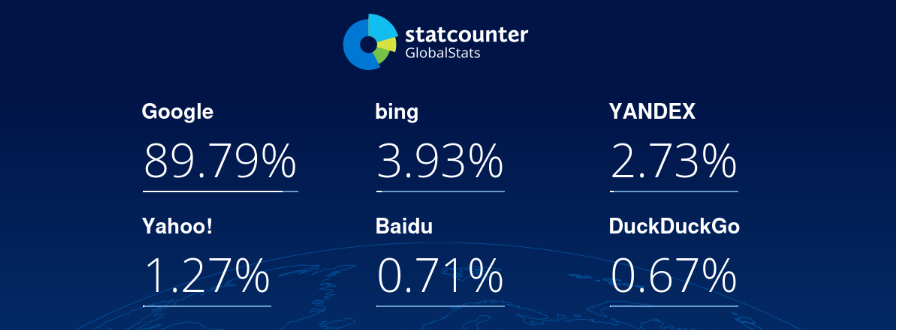Latest
SEO Industry Updates: What Did We See in January 2025?

The SEO landscape is evolving fast and staying ahead means keeping up with the latest industry trends. As we move into 2025, AI is playing a bigger role than ever, search engine market shares are shifting, and Google continues to refine its algorithms and policies.
Here’s a breakdown of the biggest SEO developments from January and how you can adapt your strategy to stay competitive.
AI’s Growing Influence on SEO
AI adoption is accelerating worldwide, especially in emerging markets. While the uptake in the US and Canada has been slower, a Google-Ipsos study shows that 57% of people globally feel optimistic about AI’s potential, particularly in science and medicine.
For marketers, AI is no longer a tool on the sidelines – it’s reshaping content strategies. Google’s latest Search Quality Rater Guidelines now account for AI-generated content, reinforcing the importance of originality and user-first value. Mass-produced, generic content won’t cut it. Instead, you need to prioritise expertise, authenticity and real value for your audience.
Here are some of the biggest AI stories from January:
Optimising Content for AI Search
Google is stepping up its efforts to detect and manage AI-generated content, making it clear that SEO strategies must evolve. AI tools can help with content creation, but you can’t rely on them for mass production without human oversight. Google’s spam guidelines remain strict – your content must serve the user, rather than be created for search engines.
Moving forward:
- Create high-value content that offers real expertise.
- Balance AI assistance with human input to maintain originality.
- Improve user experience, ensuring content is accessible and engaging across different browsing experiences, including ad-blocked environments.
- Be cautious with YMYL (Your Money or Your Life) topics, as trust and credibility are more critical than ever.
The Rise of Alternative Search Engines
Google’s global search market share dipped below 90% for the first time since 2015, losing ground to competitors like Bing, Yandex and Yahoo. AI-powered search engines like ChatGPT and Perplexity are also gaining traction, with ChatGPT’s search share expected to hit 1% this year.

This shift means you can’t rely solely on Google for visibility. Marketers are diversifying their strategies and also considering non-Google platforms as part of their strategy to capture audiences searching elsewhere. There’s also a push to optimise content for an increased chance of appearing in search snippets and AI-generated answers, which will help to secure visibility in evolving search experiences.
Google’s AI Overviews and New Features
AI-driven search isn’t just affecting alternative platforms – Google is deepening its AI integration, too. Recent data from Authoritas shows that Google’s AI Overviews now appear in 30% of searches and 74% of problem-solving queries. These overviews dominate mid-volume and question-based searches, often pulling from high-authority sources.
What does this mean for your strategy?
- Focus on authoritative content. Trusted sources have the best chance of appearing in AI-generated results.
- Optimise for problem-solving queries. Helpful, well-structured content is more likely to feature in AI summaries.
- Monitor Google’s AI experiments, such as the new “Ask for Me” tool, which allows Google AI to contact businesses on behalf of users.
ChatGPT Search: A New Traffic Driver?
ChatGPT Search is emerging as a viable traffic source, delivering significant results for some brands. Businesses like Viv have reportedly seen a +400% surge in website traffic and a +436% increase in sales from AI-driven referrals.
The key to success? Detailed, educational content that directly answers user questions. AI-driven search tools favour comprehensive, trust-building content, making it crucial to:
- Create in-depth resources that align with common user queries.
- Optimise for AI-generated responses, ensuring your content is structured for clarity.
- Track AI search performance, testing how well your pages appear in AI-powered search engines.
Google’s New JavaScript Policy
In other news, Google started requiring JavaScript to access Search in January. This change aims to reduce spam and bot activity, but it raises concerns about accessibility and security. The update could impact:
- Spam SEO tools: The primary driver of this is to block the practice of using certain SEO tools that are used to manipulate organic rankings.
- Users who search without JS enabled: Whilst only 0.1% of users search without JS enabled, this will impact the likelihood of them finding your website via Google and they may have to turn to other search engines.
- SEO ranking tools: Some SEO ranking tools may be affected by this change as well. Whilst they have the ability to crawl using JS, this may increase time and cost, which is passed on to the user.
This change doesn’t affect websites, just the use of Google’s search engine, so there should not be anything you need to do for your website in relation to this change.
Your Next Steps
SEO and the way we search are changing rapidly and keeping up with the latest trends will help you maintain visibility and drive traffic. With AI reshaping search behaviour and Google making major updates, now is the time to refine your strategy. Here’s what you need to focus on next:
- Google’s dominance is shrinking. But only slightly. AI search engines and alternative platforms are on the rise, but Google continues to dominate the market. Start exploring visibility on alternative search engines and AI-powered platforms.
- AI-driven search is reshaping SEO. Google’s AI Overviews and tools like ChatGPT Search are influencing user behaviour. Focus on creating high-quality, educational content that meets AI search expectations.
SEO is evolving fast, but by staying proactive, you can turn these changes into opportunities. Need expert guidance? Get in touch with Summit at hello@summitmedia.com.
Ready for change? Let's talk
Speak to Summit